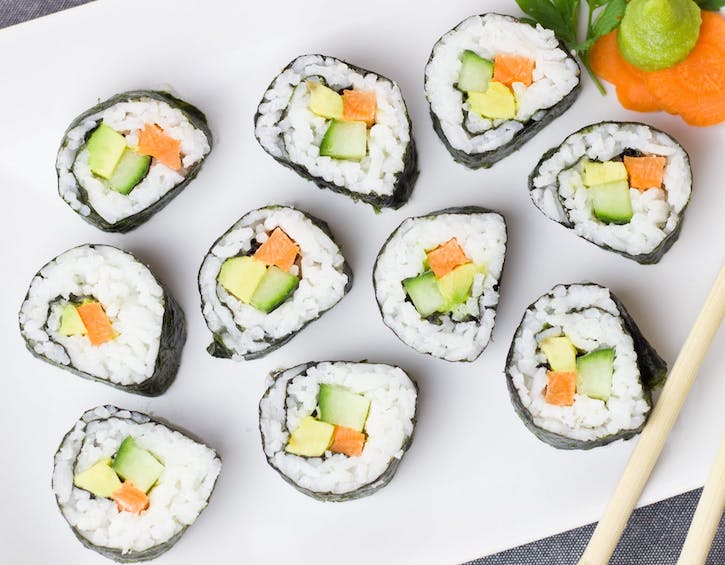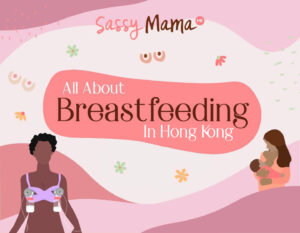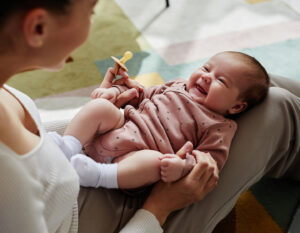

Pregnancy diet tips from a professional
Pregnancy is an incredibly special time for a mother-to-be, but it can also be a time of worry and confusion. As an expectant mother, you’re thinking about what to eat in order to maximise the nutrition and health of your little one. But understanding what to cut out and what to increase in your diet can be overwhelming. So, we decided to talk to a registered dietitian to get her quick do’s and don’ts of pregnancy nutrition to help you out. You’ll likely need to make some sacrifices and adjustments to your diet, but the good news is, there are plenty of healthy alternatives to choose from.
Read more: I’m Pregnant…Now What? Nutrition Tips for Surviving Pregnancy from a Dietitian and Mama
Do… Include Dietary Fibre in your diet
Thanks to your fluctuating hormones and your growing little one, your chance of getting constipated increases while you’re pregnant. While your baby is growing, he or she makes less space for food to be easily digested. With fluctuating hormones, food also moves at a slower rate along your digestive tract. You can prevent or ease constipation by including more dietary fibre into your meals and snacks. Dietary fibre is found in vegetables, fruits, seeds and whole grains such as oats, bran and barley. Aim to eat at least 25 grams of dietary fibre a day. Just remember, when you are upping your fibre intake, make sure you’re also drinking plenty of water.


Do… Enjoy Caffeine in Moderation
Some expectant mothers ditch their morning coffee or tea as soon as they get the positive result. This may be because they’ve heard that caffeine can increase one’s risk of miscarriage. While there is inconclusive evidence as to whether more caffeine is linked to a greater risk of miscarriage, moderate caffeine consumption during pregnancy is considered safe. The current recommendations for caffeine consumption during pregnancy is set at no more than 300mg per day.
Since caffeine is found in more than just coffee and tea, you should keep track of your caffeine intake to make sure you don’t exceed the recommended amount. Stay away from energy drinks, they contain caffeine along with herbal ingredients that are considered unsafe during pregnancy. Click here to find out more on how much caffeine you can intake during pregnancy.
Keep in mind that caffeine is a stimulant, so it can trigger a number of side effects and the severity of these effects may vary from person to person. From heartburn to interrupted sleep, to increased visits to the bathroom, these symptoms can affect one’s emotional and physical well-being. It’s no secret that pregnancy can dramatically change your cravings and sensitivity to certain foods. If you find yourself becoming more sensitive to caffeine or if you find it’s interfering with your daily routine, keep your caffeine intake to the minimum.
Don’t… Drink Alcohol
While a cup or two of coffee or tea is safe to drink during pregnancy, an alcoholic beverage is not. In fact, you should stay away from alcohol as soon as you find out you’re expecting. Drinking alcohol during pregnancy can lead to adverse effects on the unborn baby. If you’re craving a drink, go for a virgin mocktail instead.
Read more: Quick And Easy Mocktail Recipes: Non-Alcoholic Summer Drinks


Don’t… Eat and Drink Unpasteurised Dairy Products
When you’re pregnant, your immune system is weakened and you may be more susceptible to food-borne illnesses. In addition to being mindful of the types of fish you consume, you also want to take extra caution in choosing dairy products. Unpasteurised dairy products like unpasteurised milk and soft cheeses may contain Listeria, a type of bacteria that can pass through the placenta, which may increase the risk of miscarriage, premature delivery or risk infecting the newborn.
Soft cheeses like brie, camembert, feta, blue-veined cheeses, queso fresco, queso blanco and panela are generally unpasteurised and should be avoided. Instead, choose hard cheeses like Cheddar, parmesan, and Swiss. Yogurt, cottage cheese and cream cheese are generally safe to eat if they are made from pasteurised milk. Always read the package to ensure that the product is pasteurised.
Don’t… Eat Fish with High Mercury Levels
Omega-3 fats, particularly EPA and DHA are important for the development of the brain, eyes and nerves. EPA and DHA are mainly found in fish. Pregnant and breastfeeding mothers are advised to choose fish with low-mercury levels. When the foetus is exposed to high levels of mercury, he or she may experience developmental problems related to talking, walking and learning.
High levels of mercury are typically found in large fish such as shark, sword fish, sea bass, orange roughy, tilefish, and tuna (like Bigeye), and they should be completely avoided during pregnancy and breastfeeding. Instead, choose low-mercury fish like anchovies, arctic char, herring, salmon and trout, which are not only low in mercury but also a good source of EPA and DHA omega-3 fats. These fish can be safely consumed up to four servings a week, with one serving equivalent to 75 grams (or 2 ½ ounces).


Don’t… Eat Raw and Undercooked Food
On top of unpasteurised dairy products, you’re better off avoiding raw and undercooked food; poultry, fish, shellfish, eggs, deli meats, meat spreads and pâtés, and smoked meats and seafood. You will probably miss eating treats such as smoked meats, raw oysters, sushi and sashimi for about 40 weeks, but for the sake of your baby’s health, it’s best to savour these delights after delivery. To prevent yourself from getting sick, make sure your food is fully cooked to an internal temperature of at least 74ºC (165ºF).
Bottom line
Making wise food choices supports a healthy pregnancy and a healthier you. When you are in doubt about a certain food, it’s best to avoid it for the time being. Instead seek advice from your doctor or registered dietitian about any questions you may have.
 View All
View All


 View All
View All


 View All
View All

 View All
View All


 View All
View All





